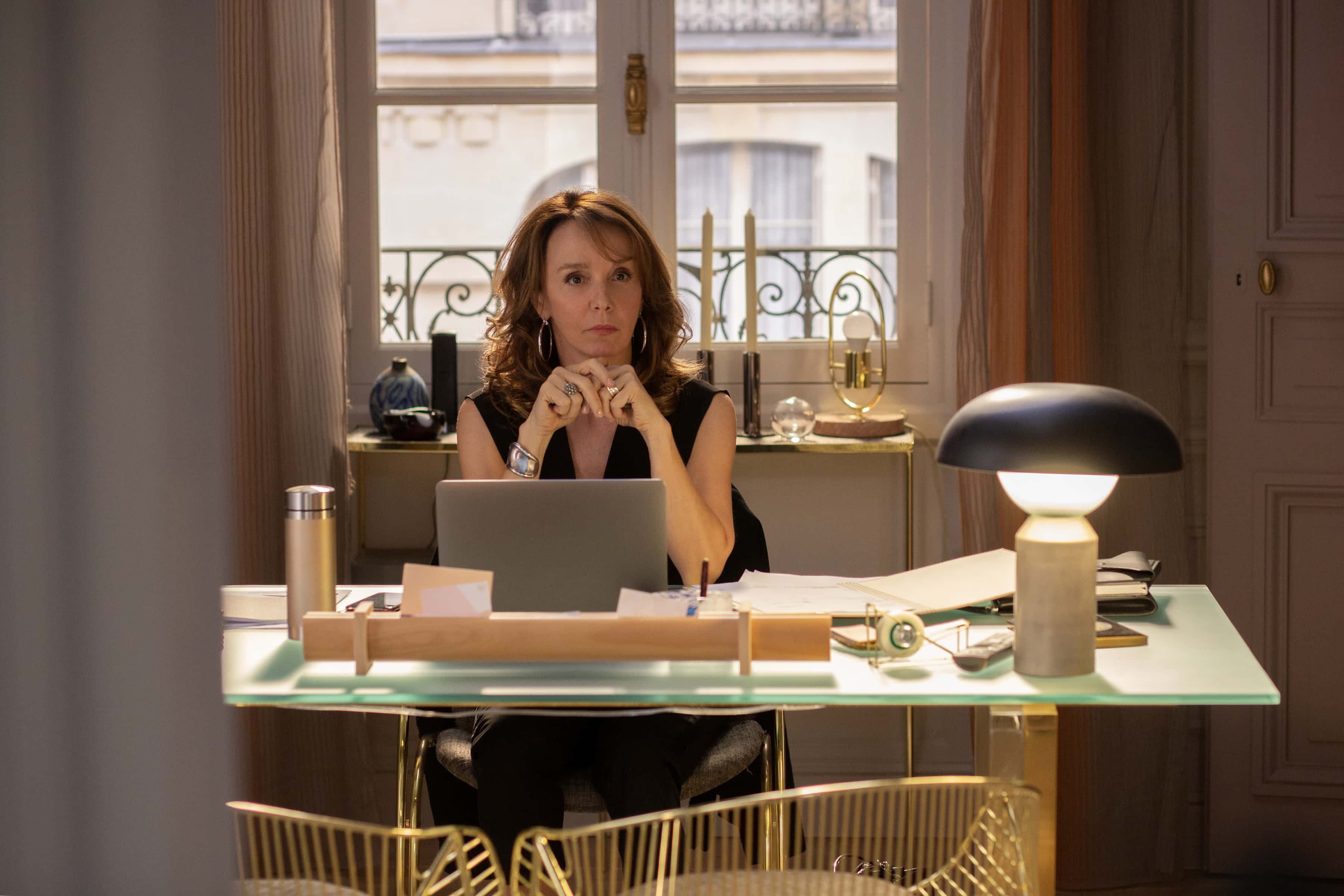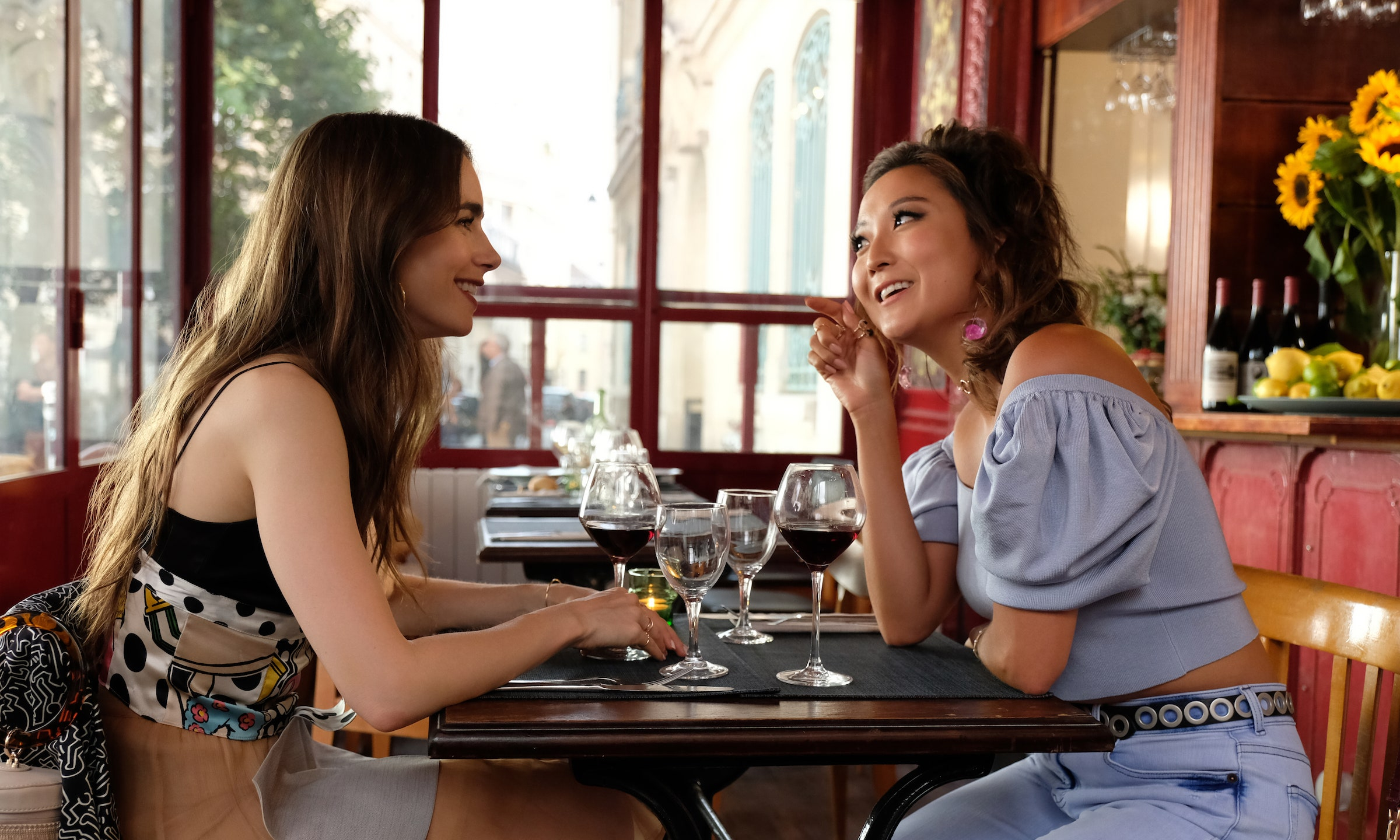Netflix’s new series Emily in Paris has stirred up quite a storm among the French, and surprisingly the rest of the world- for reasons that are not all the same.
The world can’t stop talking about Emily in Paris. For some, the show is a reason to drift away from the unpleasantries of the world- being transported to a city that is a seemingly perfect dream land, living vicariously through the protagonist Emily Cooper (played by Lily Collins), as she makes her way through her new job accompanied by croissants and cute guys. For French people, particularly Parisians, it has brought up some intriguing questions about the reality of life in France - Do the French really seem that rude to foreigners? Do they show up late to work every day? Do they terrify the new girl on the second day of her job and call her La Plouc? Well, no.
Binge-watching Emily in Paris took me back to the first time I visited Paris with my best friend, and unlike Emily, I spoke French. Not fluent French at that time, but good enough to hold a conversation with someone and truly soak in the city vibe as a faux-Parisienne. The moment I landed in Paris, however, the nervousness kicked in. What if I wasn’t able to understand what the opposite person was saying? What if I couldn’t order my coffee the way I wanted to? What if I offend someone? So when I needed to use the metro to buy “un carnet de 10 billets” (a pack of 10 tickets), you can imagine my surprise when a stranger, probably looking at the confused expression on my face, began speaking in English and started to show me how the machine worked. I cut him mid-way to inform him that I, in fact, spoke French and that I would prefer he explained it to me in French. I was met with a “Ah bon, d’accord, très bien” and a smile. And so, along the course of my sojourn, as well as several trips to Paris the following years, I maneuvered my way through similar such incidents, a couple of faux amis, and a few special French friends. And just like me, countless others can debate over the stereotypes and clichés that are ever so often associated with France and the French- somewhat portrayed in a caricaturish manner in Emily in Paris.
1. Parisians are unfriendly
 © Carole Bethuel/Netflix
© Carole Bethuel/Netflix
Many visitors have the impression that Parisians are not forthcoming in their responses, are not willing to help, or are just unwelcoming in general. This stereotype, although largely perceptive in nature, usually stems from a cultural misunderstanding; Parisians don’t express their joy and excitement the same way other people do. There are also differences in what people consider rude, depending on their own customs. For instance, a person who is used to the visual cue of a smile might find it odd that the French don’t smile so much, and could interpret it as unfriendly. On the other hand, smiling frequently could potentially be misinterpreted as well.
Most times, you can minimise putting yourself in an unwelcoming situation by adhering to these basic cultural conventions- Always say “Bonjour” while entering a store, café, or bakery. A “Merci, au revoir”, “pardon”, and “s’il vous plaît” go a long way too- especially if these are the only French words you know.
2. French people don’t speak English
This would be slightly true, maybe 10-12 years ago, but today, you’ll observe that French native speakers have come a long way in adapting to the English language. Most French people, speak the language very well. However, it may be comforting for some to know that French people strive hard to speak English as perfectly as possible - or any other language for that matter. What they find disrespectful though, is the assumption that they must speak English. The best way to approach this is to ask “Parlez-vous anglais?” (Do you speak English?) or by informing them “Je ne parle pas français” (I don’t speak French). Learning some basic vocabulary before visiting France will show that you care about French culture, and it can make your time in France much more enjoyable.
3. The French have a laid-back working style
In the series, Emily shows up early at her office, and finds that none of her colleagues reach on time; they saunter in several hours later, with her boss finally showing up after 11 AM, and people were left wondering - How many hours do the French really work? It’s true that there is a very strong focus on work life balance in France and by law the statutory working week is 35 hours, however that doesn’t mean French people are lazy. French people do work overtime to meet a deadline, and some work over 35 hours a week. Normal office hours are anywhere between 8:00 AM- 9:30 AM and end by 6:30 PM – 7:00 PM. People in France work to live, not live to work. This appreciation of the good things in life is what makes the country’s quality of life so enviable.
4. French people take long, boozy lunches
 © Netflix
© Netflix
Eating lunch at your desk is illegal in France; which does explain the leisurely guilt-free lunch breaks taken by Emily. The French appreciate their meals and so a typical lunch break in France lasts at least 1 hour. However, an elaborate meal with several courses on a work day is not the norm, particularly in a busy city like Paris. And while it is not frowned upon to drink a glass of wine at lunch, you won’t find them downing bottles of wine either.
While most of the stereotypes portrayed in the series are certainly not true – there is one that is – French guys are truly charming and you are bound to be floored by one whenever you visit France. Until then, I can only dream of packing my bags and moving to Paris – in the hopes of ‘accidently’ bumping into my handsome neighbour.

By France.fr
The magazine of the destination unravels an unexpected France that revisits tradition and cultivates creativity. A France far beyond what you can imagine…







